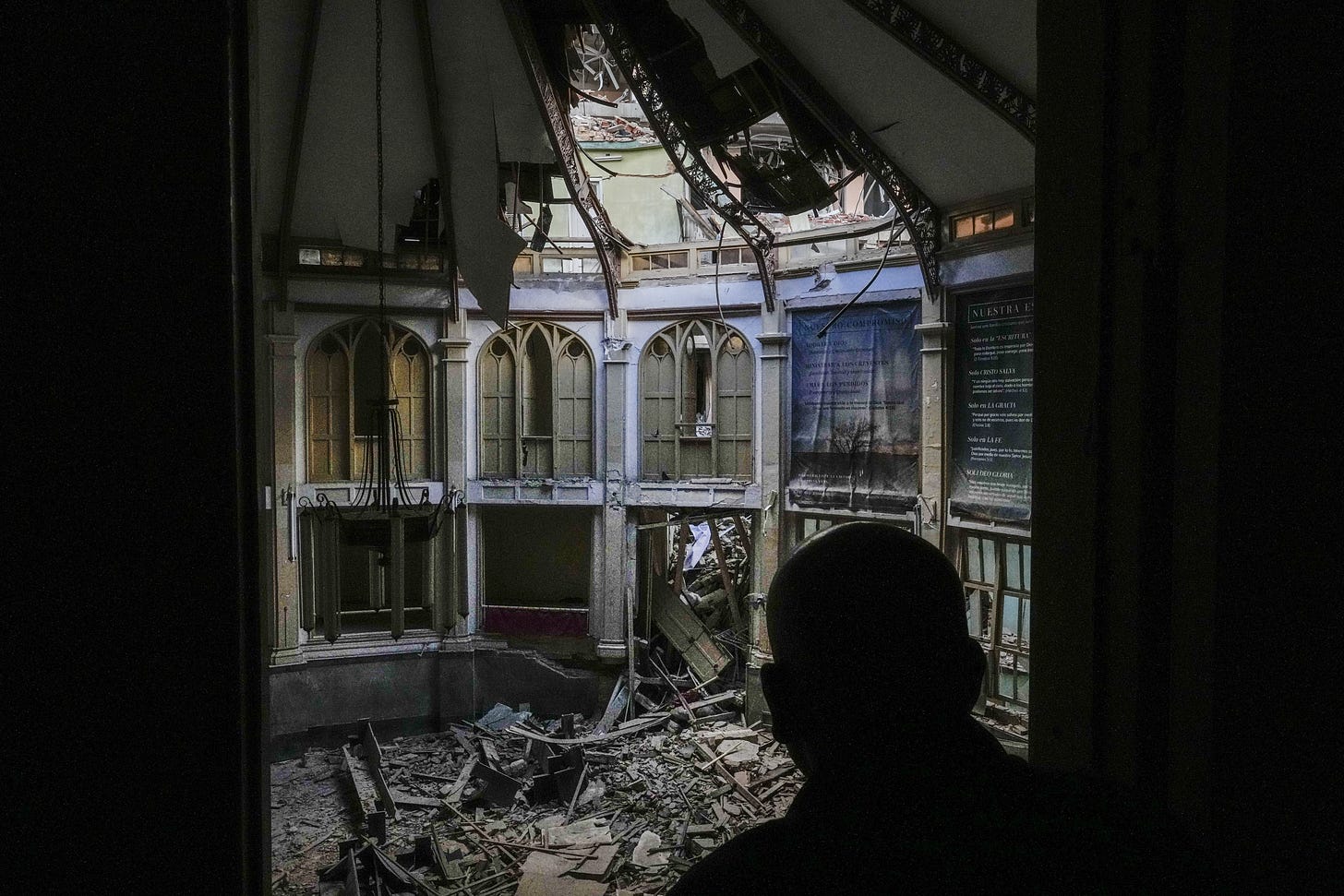Word&Way News: May 13
Here’s the weekly roundup from Word&Way. This week at A Public Witness, we published a look at church protests in light of some reports about such activism amid broader demonstrations about abortion and a report on the Christian Nationalism of the GOP frontrunner for Pennsylvania governor.
Support our journalism ministry by upgrading to a paid e-newsletter subscription today!
Top 5 at wordandway.org
A Recipe to Pass Down. Lauren Graeber used a chocolate chip cookie recipe to explore theology and the traditions we pass down to our children.
Who’s Forgiving Whom? Kristel Clayville reframed the student loan forgiveness conversation around the idea of reconciliation.
The Reality of Abortion. Darron LaMonte Edwards wrote that before Roe, during Roe, and after Roe abortion has been and will be a reality — and any good faith conversation should reflect that.
Review: The Mind in Another Place. Robert D. Cornwall reviews The Mind in Another Place: My Life as a Scholar by Luke Timothy Johnson.
White House’s Melissa Rogers Affirms Religious Diversity as Interfaith Group Expands. Adelle M. Banks reported on a recent event with comments by Ebo Patel, Melissa Rogers, and Jim Wallis.
Dangerous Dogma
This week: Michael Livingston of Riverside Church
Other good podcasts this week:
Amanda Tyler of the Baptist Joint Committee for Religious Liberty and Brian Kaylor were the guests on the Faithful Politics podcast to talk about the Supreme Court case Kennedy v. Bremerton.
Brian Kaylor was the guest on the podcast Talkin’ Politics & Religion Without Killin’ Each Other.
Other News of Note
Ruth Graham of the New York Times reported about an Arkansas pastor who left his church amid growing tensions from members pushing Trumpian politics and conspiracy theories.
Tim Alberta wrote for The Atlantic about “How Politics Poisoned the Evangelical Church.”
NPR reported on how “Orthodox Christian Churches are Drawing in Far-Right American Converts.”
Kathryn Joyce and Ben Lorber wrote a two-part series (part 1 and part 2) for Salon on ties between some conservative Catholics and White Nationalists.
Katherine Stewart wrote for The New Republic about “repurposing of Latino-dominant evangelical churches for partisan political advantage on the right.”
Historian Randall Balmer wrote for Politico about “The Abortion History the Right Doesn’t Mention.”
Historian Kristin Kobes Du Mez spoke to NPR’s Consider This about abortion and evangelical Christians.
Historian Daniel K. Williams wrote for The Atlantic about “The Southernization of the Pro-Life Movement.”
Jon Ward, a correspondent for Yahoo! News, wrote for Christianity Today that “Being a Political Journalist Made Me a Better Christian.”
Warren Cole Smith wrote at MinistryWatch about how journalism can save evangelicalism.
Social Shout-Outs
It’s always exciting to see our pieces shared on social media.
We’re Honored
This week, Word&Way won eight awards for our journalism in 2021 (four of which were for pieces published in A Public Witness). We won three first-places awards from Religion Communicators Council:
in feature article for Brian Kaylor and Beau Underwood: “Has the Christian Flag Become a Lost Cause?”
in photo series for Brian Kaylor: “Smoke & Fire.”
in editorial series: “Unsettling Advent.”
Additionally, we received five awards from the Associated Church Press:
Award of Excellence (1st place) in photo essay for Brian Kaylor: “Smoke & Fire.” He also received an Honorable Mention in that category for “Rallying for Justice.”
Award of Merit (2nd place) for Brian Kaylor in editorial courage: “Time for Al Mohler to Resign.”
Honorable Mention for Brian Kaylor in short denominational politics article: “Southwestern Accuses Pattersons of Theft, Improper Donor Solicitation.”
Honorable Mention for Brian Kaylor in in-depth coverage (multiple articles): “Legal Fight Over SBU Governing Documents.”
Quick Take
by Brian Kaylor, Word&Way Editor-in-Chief
Since the start of the pandemic just over two years ago, about 1 million people in the U.S. have officially died from COVID-19 (and likely many others not counted due to inadequate testing). Globally, the number is more than 6 million, with millions more excess deaths likely also due to this deadly virus.
One million Americans. It’s a number so large it’s hard to comprehend. The Washington Post put together a powerful visual report to help readers get a sense of the scale of COVID deaths. But 1 million can still be a difficult concept to visualize.
Consider getting together 1 million drops of water. You could fill more than 13.2 gallons with that. Or consider stacking 1 million $1 bills — and feel free to donate so I can demonstrate this — it would rise up about 361 feet. Or consider typing 1 million characters in a Word document. You will fill up about 328 pages of single-spaced text.
Or consider pausing for 1 million seconds, giving one second of silent reflection for each person who died in our nation. You would be quiet for more than 11.5 days. The Washington National Cathedral on Monday (May 9) rang a bell 1,000 times as a reflection on this dark milestone. Even just ringing it once for every 1,000 people still took them more than an hour and a half. You can listen online.
One million Americans made in the image of God. Globally, more than six million people loved by God. We must avoid the temptation to numb ourselves to that loss. We must allow ourselves to pause and lament.
Photo of the Week

Thanks for reading!




